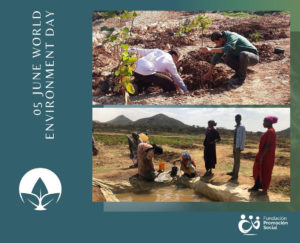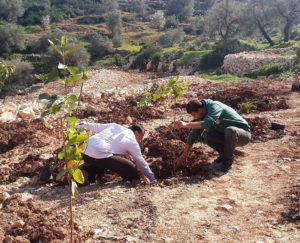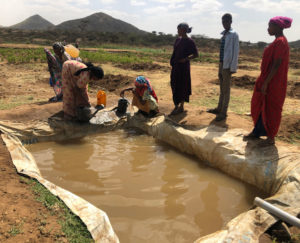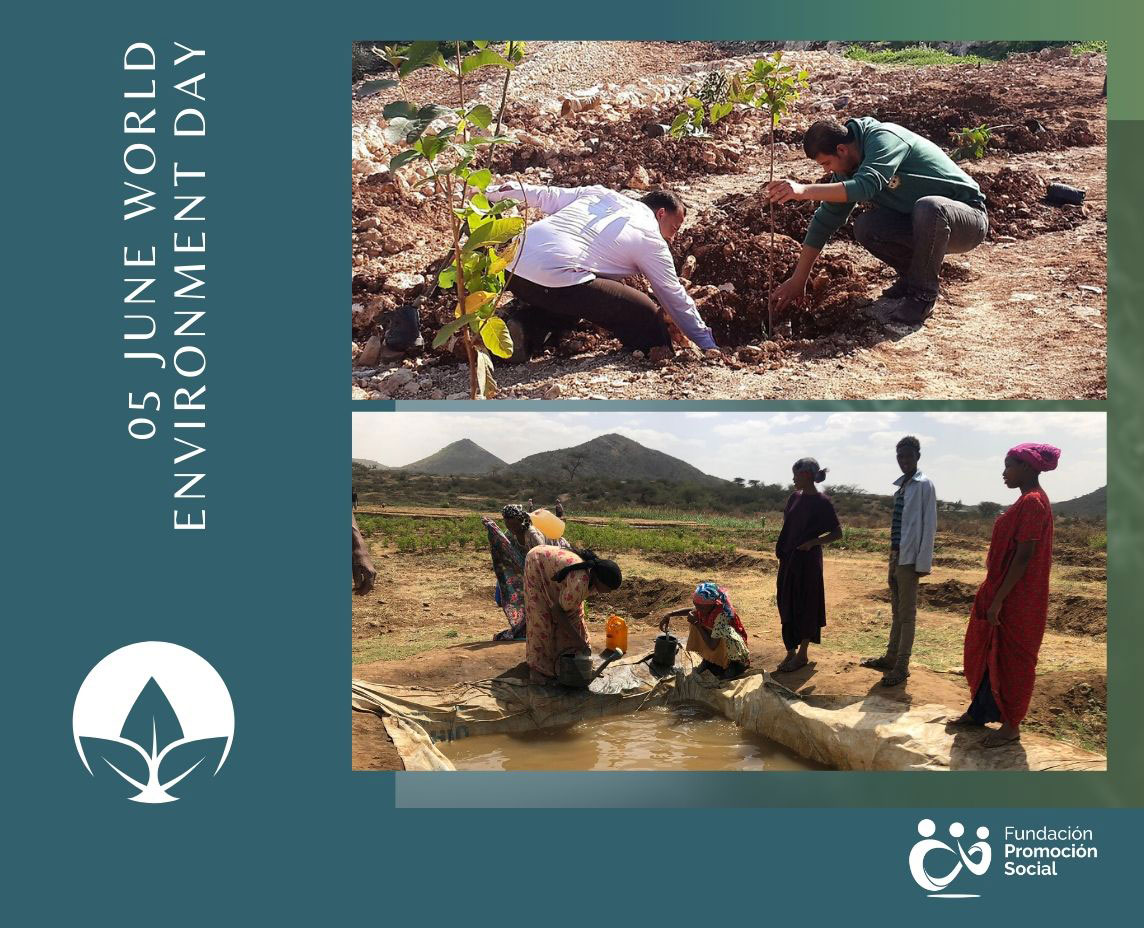
Climate change is one of the main causes of biodiversity loss in the world, along with habitat loss, overexploitation, pollution and invasive species.
The loss of biodiversity will have serious consequences for humanity, including the collapse of food and health systems.
This is why, in the current context of the global crisis generated by COVID-19, our work in countries such as Palestine and Ethiopia, to combat the effects of climate change and ensure, through agricultural development, agricultural resources and food security for this population, is a priority.
Social Promotion Foundation works in two agreements, in Palestine and Ethiopia, financed by AECID, where it works to alleviate the effects of climate change by also promoting rural development with a human rights and gender focus.
Palestine

We train local technicians in the field of solar energy in collaboration with the Energy Research Center of An Najah University.
We promote research and knowledge transfer, more specifically, converting oil mill waste from oil production into a cleaner energy resource (biomass) and innovating in the treatment of solid waste (water with oil residues), which is highly contaminating, to prevent it from being dumped again and producing filtration.
Ethiopia

The Agreement addresses this problem and seeks to contribute to the availability of productive resources and their sustainable management, by providing infrastructure for the collection, distribution (irrigation) and storage of rainwater and groundwater for agricultural use; training in the use of efficient and sustainable agricultural production techniques (intercropping, agroforestry, vermiculture); the provision of quality inputs (improved seeds, biofertilizers) and adapted agricultural machinery; and the conservation of pastures and fodder banks, to increase livestock and dairy production.
One of the main aspects is the sustainable recovery of the local environment from the impacts of climate change and natural disasters, by reducing erosion through physical, biological and mechanical measures; the recovery of degraded areas through reforestation campaigns with native species and the increase of biodiversity by reintroducing adapted species through the creation of a nursery and a seed bank.





